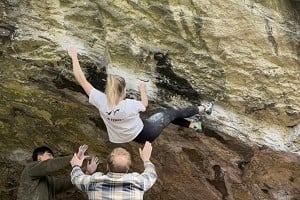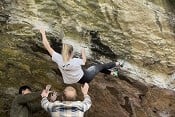
A recent review of the scientific literature pertaining to 'young climbers' has recently been published in the British Journal of Sports Science by Audry Morrison and Volker Schöffl (Br J Sports Med. 2007 May 22; [Epub ahead of print]) and it makes very interesting reading. Morrison and Schöffl define young climbers as those aged between 7-17. Their conclusions are based on a critical review of the scientific literature and some of their important conclusions and recommendations are reproduced below:
Clearly, parents of climbing children should take heed of these recommendations.





Comments